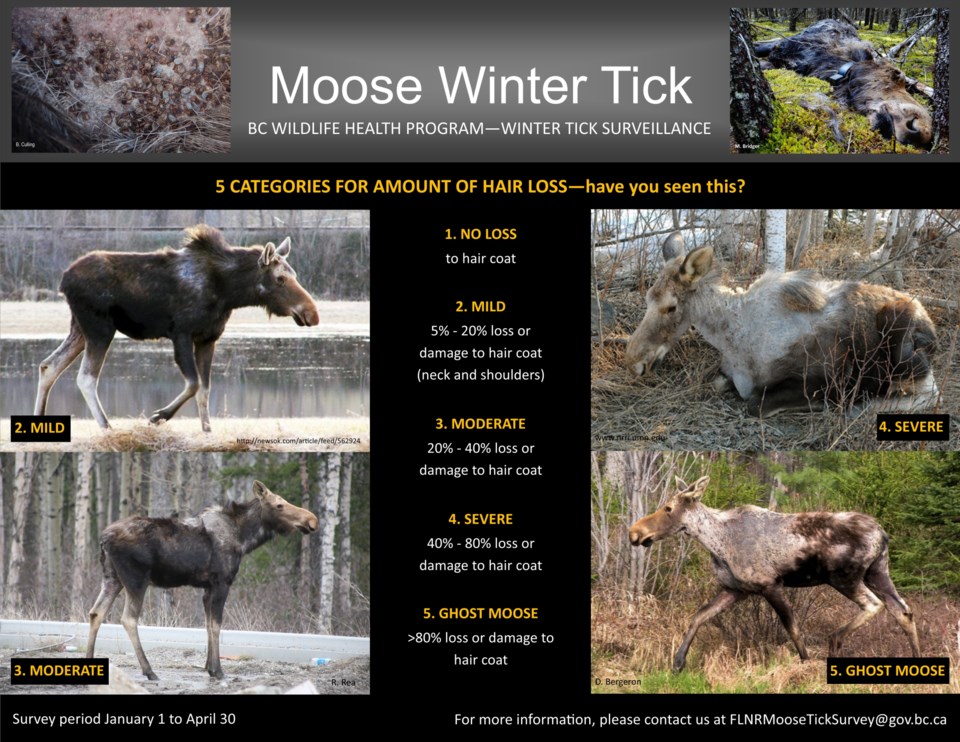The BC Wildlife Health Program is looking for help gathering observations of hair loss caused by winter ticks on moose throughout the province.
By filing reports with the moose winter tick surveillance program, outdoor enthusiasts will aid in getting a handle on the extent of the problem.
"Winter ticks are a significant parasite for moose populations and can contribute to moose declines in parts of their range, including B.C. So, it is an important health factor to monitor, particularly with climate change and alterations to moose habitat," a BCWHP official said in a circular.
Now in its seventh year, this year's version began on January 1 and runs until April 30. Last year, 426 reports were submitted from across the province and organizers are hoping for an even larger response this time around.
"The ticks spend the entire winter on one moose and there can be as many as tens of thousands on one individual. As the female ticks become adults they feed on blood in late winter and the irritation causes moose to scratch and groom themselves excessively, resulting in hair loss. The extent of the hair loss is a rough indicator of how many ticks are present and can be observed easily from a distance. We know that tick infestations can result in behavioral changes or direct health impacts that may reduce moose survival."
Reports can be submitted online by going to www.gov.bc.ca/wildlifehealth/mooseticksurvey and clicking on “Complete the online form” on the right side of the page.



